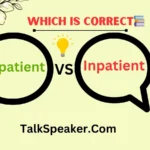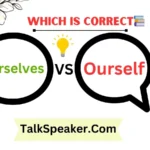Understanding the difference between “even though” and “eventhough” can seem trivial, but it plays a significant role in written and spoken communication.
This blog post will explore the correct usage of “even though,” debunk common misconceptions, and offer practical tips to ensure you’re using this phrase correctly.
By the end, you’ll be confident in distinguishing between the two and using “even though” effectively.
Understanding the Confusion
Many people find themselves puzzled by the phrase “even though.” The confusion often arises because “eventhough” appears in various contexts, leading to its mistaken acceptance as correct. But here’s the truth: “eventhough” is not a standard term in English. The correct phrase is always “even though.”
Why “Eventhough” Appears
“Eventhough” might pop up due to typographical errors or the influence of similar-sounding phrases. In rapid typing or casual communication, people often merge words together, leading to such errors. Despite its appearance, “eventhough” does not appear in reputable dictionaries or style guides, making it a nonstandard form.
Origin and Correct Usage of “Even Though”
The phrase “even though” has a long-standing history in American English. It’s used to introduce a contrasting idea or exception. Its proper use enhances clarity in writing and speaking.
Historical Background
“Even though” has roots in Old English, evolving from phrases like “eall þæt” (all that) to its current form. Its use has been standardized in modern English to introduce clauses that present a concession or exception.
How to Use “Even Though” Correctly
“Even though” functions as a conjunction that introduces a subordinate clause. Here are some examples:
- Example 1: Even though it was raining, the event went ahead as planned.
- Example 2: She completed the marathon, even though she was injured.
In both examples, “even though” introduces a contrasting situation, highlighting how the main clause contrasts with the subordinate clause.
The Importance of Keeping Words Separate
Keeping “even though” separate is crucial for readability and grammatical accuracy. Merging it into “eventhough” can lead to misunderstandings and misinterpretations.
Impact on Readability
When words are combined incorrectly, it can disrupt the flow of reading and make the text appear less professional. Correctly using “even though” ensures clarity and maintains the quality of your writing.
Table: Comparison of “Even Though” and “Eventhough”
| Aspect | Even Though | Eventhough |
| Usage | Correctly used in standard English | Incorrect and nonstandard |
| Readability | Improves clarity and flow | Can confuse readers |
| Acceptance | Widely accepted in dictionaries and guides | Not recognized in reputable sources |
How Popular Usage Dictates Correct Spelling
Language evolves, and popular usage often influences what becomes accepted as “correct.” However, established guidelines and standards still play a critical role in determining proper usage.
Influence of Widespread Usage
While widespread usage can shape language norms, it doesn’t always dictate correctness. The phrase “even though” has consistently been upheld in grammatical standards, despite occasional misuse.
Quote: “Language is a living thing, but that doesn’t mean we should ignore the rules that help us communicate clearly.” — Language Expert
Evaluating Sources: Dictionaries and Style Guides
Consulting reputable dictionaries and style guides is essential for verifying the correct usage of phrases like “even though.” These sources provide authoritative guidance on standard language practices.
Major Dictionaries’ Stance
Dictionaries such as Merriam-Webster and Oxford English Dictionary confirm that “even though” is the correct form. “Eventhough” does not appear in these authoritative sources.
Key Style Guides
Style guides like The Chicago Manual of Style and The Associated Press Stylebook emphasize the use of “even though”. They provide detailed guidelines for maintaining accuracy in writing.
Table: Dictionary and Style Guide Endorsements
| Source | Recommendation |
| Merriam-Webster | Even though (correct) |
| Oxford English Dictionary | Even though (correct) |
| The Chicago Manual of Style | Even though (correct) |
| Associated Press Stylebook | Even though (correct) |
Common Misconceptions About “Eventhough”
Several misconceptions surround the use of “eventhough.” Addressing these myths helps clarify the correct usage and avoid common errors.
Debunking Myths
- Myth:“Eventhough” is an acceptable variant.
- Fact: “Eventhough” is not recognized by any reputable dictionary or style guide.
- Myth:“Even though” is outdated or less formal.
- Fact: “Even though” is widely accepted and used in both formal and informal contexts.
Examples in Context: Using “Even Though” Correctly
Using “even though” correctly enhances your writing and speaking. Here are some contextual examples:
Real-World Examples
- Professional Setting: Even though the project was challenging, the team delivered it on time.
- Personal Communication: She enjoyed the concert, even though the weather was unpleasant.
Correct vs. Incorrect Usage
- Correct: Even though I was tired, I attended the meeting.
- Incorrect: Eventhough I was tired, I attended the meeting.
Case Study: In a recent corporate report, using “even though” clarified contrasts in project outcomes, enhancing the report’s readability.
Cultural Insights: Translations of “Even Though” Around the World
Understanding how “even though” translates into other languages can offer insights into its universal application and variations.
Translations and Usage
- French: Bien que — Similar usage to express contrast.
- Spanish: Aunque — Used to introduce a contrasting clause.
- German: Obwohl — Functions similarly in conveying concessions.
Table: Translations of “Even Though”
| Language | Translation | Usage Example |
| French | Bien que | Bien que je sois fatigué, j’ai travaillé. |
| Spanish | Aunque | Aunque estaba cansado, fui al trabajo. |
| German | Obwohl | Obwohl ich müde war, ging ich zur Arbeit. |
Practical Tips to Remember the Difference
Remembering the correct usage of “even though” involves simple strategies and tricks.
Mnemonics and Strategies
- Mnemonic: Think of “even though” as two separate entities—“even” and “though”—to remember they should not be combined.
- Proofreading Tip: Always check for the correct separation of words during editing.
Quote: “Clarity in writing is achieved not just through grammar, but through careful attention to detail.” — Writing Coach
Phonetic Clues in Pronunciation
Pronunciation can offer clues about correct usage. “Even though” is pronounced distinctly, and listening to its sound can help differentiate it from incorrect forms.
Pronunciation Insights
- Correct Pronunciation: /ˈiːvən ðoʊ/
- Common Mistakes: Merging sounds may lead to confusion, reinforcing the importance of clear enunciation.
Why Typos Can Lead to Misunderstandings
Typos and errors like “eventhough” can alter the meaning of your message, leading to potential misunderstandings.
Consequences of Using “Eventhough”
- Misinterpretation: Readers might perceive it as a mistake or unfamiliar term.
- Reduced Credibility: Incorrect usage can undermine the professionalism of your writing.
Example: In a formal report, using “eventhough” instead of “even though” could lead to confusion and reduce the document’s effectiveness.
Applying Your Knowledge: Enhancing Grammatical Accuracy
To solidify your understanding of “even though,” engage in practical exercises and apply the rules in your writing and speaking.
Practical Exercises
- Exercise 1: Rewrite sentences with “even though” to ensure proper usage.
- Exercise 2: Proofread your written work to spot and correct any misuse of “even though.”
Final Tip: Regular practice and attention to detail will help you maintain grammatical accuracy and clarity in communication.
Conclusion
In summary, mastering the correct usage of “even though” versus “eventhough” is crucial for clear and effective communication. By understanding the history, correct usage, and practical tips outlined in this blog post, you’ll be better equipped to use “even though” accurately and confidently.
For further reference, consult reputable dictionaries and style guides to reinforce your understanding and application of “even though.” Happy writing!

Sophie Mitchell, a seasoned English educator, brings her passion for language and years of teaching expertise to TalkSpeaker. With a knack for simplifying grammar and expanding vocabulary, she empowers learners to master English with confidence.




